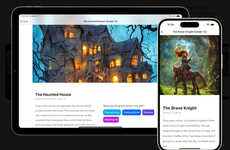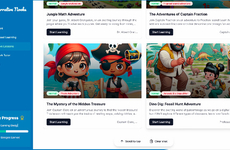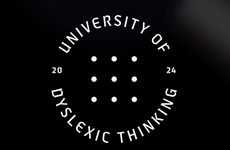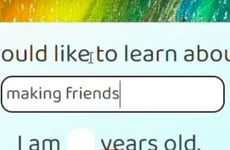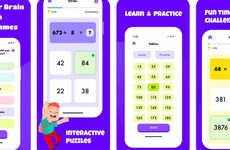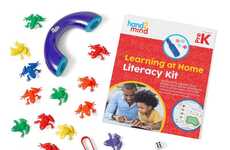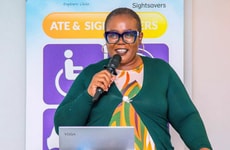
The Unschooling Movement
Sandra Winn — September 2, 2008 — Social Good
References: holtgws & joyfullyrejoycing
Words cannot express my utmost respect and admiration for the late John Holt, a public school educator, major proponent of school reform, and best known for his philosophy of learning naturally -— unschooling or child-directed learning.
Birds fly, fish swim, man thinks and learns. Therefore, we do not need to motivate children into learning by wheedling, bribing or bullying. We do not need to keep picking away at their minds to make sure they are learning. What we need to do, and all we need to do, is bring as much of the world as we can… into their lives; give children as much help and guidance as they ask for; listen respectfully when they feel like talking; and then get out of the way. We can trust them to do the rest. ~John Holt, How Children Learn
Unschooling does not mean unlearning or not learning, it means to foster the innate love of learning and curiosity that all children possess, practically from the first day they are born.
Unschooling, like Joyce Fetteroll says in the excerpt below, was not invented by John Holt. Holt challenged the educational standards of modern schooling and encouraged people to embrace the basics of how humans have always learned and to trust that their children will learn — and quite a few parents are choosing to do just that.
Unschooling is a growing and controversial educational movement among home schoolers (especially secular home educators), and one many people do not fully embrace until they’ve experienced other ways of home schooling their children. It is also perhaps the most misunderstood form of home education, both by those who go to public schools and those in the home schooling community.
Why? Because of ignorance (though not willful), they cannot fathom how children learn without being forced, and also because people are stuck in their ways and feel that only public and private teachers are capable of providing children with an education. They cannot understand “how” a child learns outside of scope and sequence charts, grades, and standardized tests—completely understandable because compulsory schooling is so ingrained in our thinking.
What does unschooling mean? The best way to understand what unschooling means, is to go back in time to our earliest roots and realize that humans are driven to learn on their own and without coercion.
Our earliest ancestors did not sit in a classroom to learn how to build a wheel, use tools, implement agricultural techniques, nor build shelter. Sure, they started out simple but they learned on their own because they were driven by circumstances and a desire to make life better. As time went on, ways of transporting people and good, tools, agriculture, and shelters became complex. Without forced learning, humans learned to use the stars as a way to navigate and mark days and seasons. Without bribing, humans learned to make complex geometrical patterns using nature as their guide. Even some Greek cultures took a more natural approach to learning. The Greek philosopher Aristotle did not force people to sit with him and learn, they came to be taught of their own volition.
Another way to comprehend unschooling is to look at how babies learn. Do parents lie on their stomachs and roll over to teach a baby how it’s done? Do they scoot on their bellies to “teach” a baby how to be a belly scooter? Do parents give a presentation on how to go from scooting to crawling? Have you ever seen a parent giving lessons on how to climb up on furniture? Of course not. A baby learns to do those things based on their own drive and determination, and through trial and error.
Unschooling goes a step further and applies a natural desire for learning to education. Holt recognized that often times children start off enjoying school but then later, many lose their love for learning because they are being forced to learn things of which they have no interest. He hated labels like “slow”, “learning-disabled”, “lazy”, and other terms used to describe a child who does not do well in school and argued that if they were allowed to follow their own interests and passions, learning would ensue.
Parents who unschool simply allow their children to determine their own path and give them the needed tools to learn what they (the child) want, rather then what others deem necessary to be educated. For instance, if a child is passionate about music, the parent will surround said child with instruments, books, television, take them to concerts, and whatever else is needed to encourage their child. As the child grows older, their in-depth desire and passion will eventually span and “cover” other basic educational skills such as reading, writing, culture, math, science, etc. Instead of forcing their child to read a book that doesn’t interest them, the child will learn to read by reading books they choose.
A seasoned unschooler does not panic if their child isn’t reading or doing multiplication by age “x”, because they see learning happening in other areas. Unschooling also takes into account individual learning styles and that not all children learn the same things at the same time—they don’t compare their children to peers, period. In other words, third grade Susie who goes to public school knows and can rattle off the multiplication table, whereas Sally the unschooled child knows and can do the same about composers. The unschooling parent doesn’t fret over their child not knowing the multiplication tables anymore than a public or private school parent worries about their child not knowing musical composers.
A common phrase uttered by unschoolers and seen on some of their bumper stickers is, “The World is our Classroom.” They use books, nature, life experiences, arts and crafts, discussions, television, movies, video games, and everything else available in which to help their children develop skills by living life.
Our world is filled with diversity and individuality, we don’t force other adults to learn what they don’t want to learn; if they want to advance in their career, they have a choice to learn what they need to do to make it happen whether they are passionate about it or not. Unschooling allows the same for children, a choice to determine their own fate. However, they are not left alone to figure it all out on their own, that is where a loving and supportive parent comes in to play by guiding their child in the way they want to go.
Birds fly, fish swim, man thinks and learns. Therefore, we do not need to motivate children into learning by wheedling, bribing or bullying. We do not need to keep picking away at their minds to make sure they are learning. What we need to do, and all we need to do, is bring as much of the world as we can… into their lives; give children as much help and guidance as they ask for; listen respectfully when they feel like talking; and then get out of the way. We can trust them to do the rest. ~John Holt, How Children Learn
Unschooling does not mean unlearning or not learning, it means to foster the innate love of learning and curiosity that all children possess, practically from the first day they are born.
Unschooling, like Joyce Fetteroll says in the excerpt below, was not invented by John Holt. Holt challenged the educational standards of modern schooling and encouraged people to embrace the basics of how humans have always learned and to trust that their children will learn — and quite a few parents are choosing to do just that.
Unschooling is a growing and controversial educational movement among home schoolers (especially secular home educators), and one many people do not fully embrace until they’ve experienced other ways of home schooling their children. It is also perhaps the most misunderstood form of home education, both by those who go to public schools and those in the home schooling community.
Why? Because of ignorance (though not willful), they cannot fathom how children learn without being forced, and also because people are stuck in their ways and feel that only public and private teachers are capable of providing children with an education. They cannot understand “how” a child learns outside of scope and sequence charts, grades, and standardized tests—completely understandable because compulsory schooling is so ingrained in our thinking.
What does unschooling mean? The best way to understand what unschooling means, is to go back in time to our earliest roots and realize that humans are driven to learn on their own and without coercion.
Our earliest ancestors did not sit in a classroom to learn how to build a wheel, use tools, implement agricultural techniques, nor build shelter. Sure, they started out simple but they learned on their own because they were driven by circumstances and a desire to make life better. As time went on, ways of transporting people and good, tools, agriculture, and shelters became complex. Without forced learning, humans learned to use the stars as a way to navigate and mark days and seasons. Without bribing, humans learned to make complex geometrical patterns using nature as their guide. Even some Greek cultures took a more natural approach to learning. The Greek philosopher Aristotle did not force people to sit with him and learn, they came to be taught of their own volition.
Another way to comprehend unschooling is to look at how babies learn. Do parents lie on their stomachs and roll over to teach a baby how it’s done? Do they scoot on their bellies to “teach” a baby how to be a belly scooter? Do parents give a presentation on how to go from scooting to crawling? Have you ever seen a parent giving lessons on how to climb up on furniture? Of course not. A baby learns to do those things based on their own drive and determination, and through trial and error.
Unschooling goes a step further and applies a natural desire for learning to education. Holt recognized that often times children start off enjoying school but then later, many lose their love for learning because they are being forced to learn things of which they have no interest. He hated labels like “slow”, “learning-disabled”, “lazy”, and other terms used to describe a child who does not do well in school and argued that if they were allowed to follow their own interests and passions, learning would ensue.
Parents who unschool simply allow their children to determine their own path and give them the needed tools to learn what they (the child) want, rather then what others deem necessary to be educated. For instance, if a child is passionate about music, the parent will surround said child with instruments, books, television, take them to concerts, and whatever else is needed to encourage their child. As the child grows older, their in-depth desire and passion will eventually span and “cover” other basic educational skills such as reading, writing, culture, math, science, etc. Instead of forcing their child to read a book that doesn’t interest them, the child will learn to read by reading books they choose.
A seasoned unschooler does not panic if their child isn’t reading or doing multiplication by age “x”, because they see learning happening in other areas. Unschooling also takes into account individual learning styles and that not all children learn the same things at the same time—they don’t compare their children to peers, period. In other words, third grade Susie who goes to public school knows and can rattle off the multiplication table, whereas Sally the unschooled child knows and can do the same about composers. The unschooling parent doesn’t fret over their child not knowing the multiplication tables anymore than a public or private school parent worries about their child not knowing musical composers.
A common phrase uttered by unschoolers and seen on some of their bumper stickers is, “The World is our Classroom.” They use books, nature, life experiences, arts and crafts, discussions, television, movies, video games, and everything else available in which to help their children develop skills by living life.
Our world is filled with diversity and individuality, we don’t force other adults to learn what they don’t want to learn; if they want to advance in their career, they have a choice to learn what they need to do to make it happen whether they are passionate about it or not. Unschooling allows the same for children, a choice to determine their own fate. However, they are not left alone to figure it all out on their own, that is where a loving and supportive parent comes in to play by guiding their child in the way they want to go.
Trend Themes
1. Unschooling Movement - Disruptive innovation opportunity: Develop new educational models that prioritize child-directed learning and foster innate curiosity to revolutionize traditional schooling systems.
2. Home Education - Disruptive innovation opportunity: Create innovative tools and resources for parents who choose to educate their children at home, including personalized learning platforms and alternative assessment methods.
3. Individualized Learning - Disruptive innovation opportunity: Design adaptive learning technologies that cater to individual students' learning styles and interests, enabling personalized and engaging learning experiences.
Industry Implications
1. Education - Disruptive innovation opportunity: Transform traditional education systems by incorporating child-directed learning and personalized approaches to better meet the needs of diverse learners.
2. Technology - Disruptive innovation opportunity: Develop cutting-edge educational technology solutions that support individualized learning and empower students to take ownership of their education.
3. Parenting - Disruptive innovation opportunity: Create resources and platforms to support parents in embracing child-directed learning and alternative education methods, fostering a lifelong love for learning in their children.
3.1
Score
Popularity
Activity
Freshness



